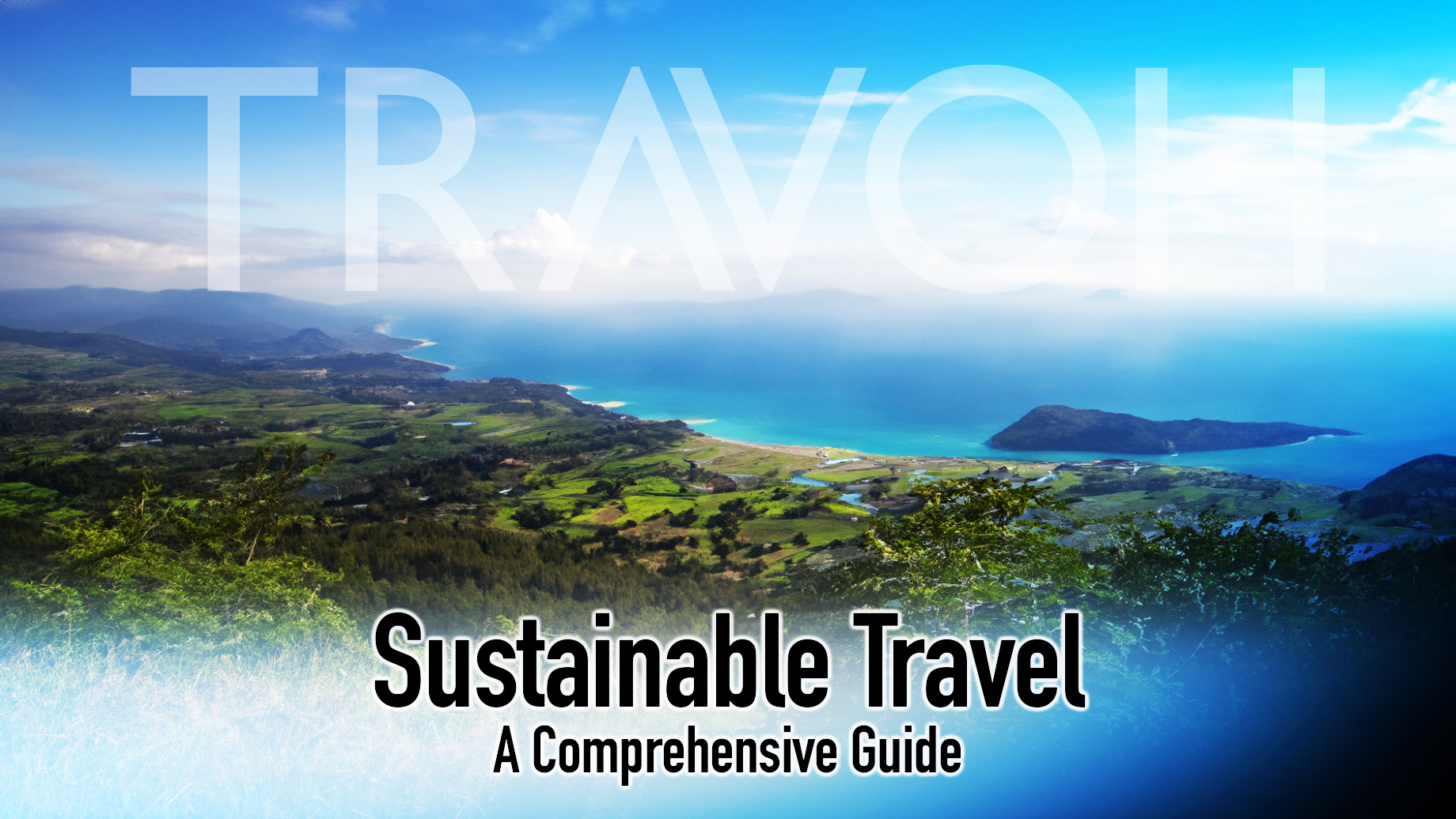
Sustainable travel has become more than just a buzzword; it’s a necessity in our rapidly changing world. As the impacts of climate change become more apparent and the need to protect our planet’s resources grows ever more urgent, sustainable travel offers a way to explore the world without harming it. This comprehensive guide is designed to help you understand what sustainable travel is and how you can make your next trip more eco-friendly.
Introduction to Sustainable Travel
Sustainable travel focuses on minimizing negative impacts on the environment, society, and economy while enhancing positive contributions. It emphasizes respect for local cultures, protection of natural resources, support for local economies, and personal growth. Here’s a deep dive into the key aspects that contribute to a sustainable travel experience.
Research and Plan Ahead
Understanding your destination’s environmental policies, cultural norms, and local customs helps you make informed decisions that are respectful and beneficial. Consider factors like seasonality, local sustainability initiatives, and potential ways to reduce your impact.
Choose Sustainable Destinations
Select destinations with strong sustainability policies, conservation efforts, community-based tourism, eco-certifications, government initiatives, and education programs. These choices ensure that your travel supports places that prioritize environmental and community well-being.
Opt for Eco-Friendly Transportation
Transportation plays a crucial role in your trip’s carbon footprint. Whether flying, driving, or taking public transport, there are ways to minimize your impact, such as choosing eco-friendly airlines, renting electric vehicles, carpooling, or cycling.
Stay in Eco-Friendly Accommodations
From eco-lodges to locally-owned B&Bs, many accommodations are taking steps to be more sustainable. Look for places with certifications from recognized sustainability bodies, energy-efficient operations, and community development initiatives.
Support the Local Economy
Embrace local products and services. Whether it’s dining at local eateries, buying from local artisans, or choosing local tour operators, supporting the local economy ensures that your tourist dollars have a positive impact on the community.
Respect Local Culture and Environment
Travel with cultural sensitivity and environmental consciousness. Follow local customs, maintain safe distances from wildlife, and adhere to the ‘leave no trace’ principles. Educate yourself on local etiquette and environmental preservation.
Participate in Sustainable Activities
Engage in activities that have a low environmental impact and positive community effect. From outdoor adventures to volunteering and responsible shopping, choosing sustainable activities enhances your travel experience while minimizing your impact.
Offset Your Carbon Footprint
Consider offsetting unavoidable carbon emissions through credible offset programs. Calculate your emissions, invest in certified projects, and make carbon offsetting a regular part of your travel planning and lifestyle.
The Importance of Sustainable Travel
Sustainable travel is not just about reducing negative impacts; it’s about creating positive change. It encourages responsible practices that preserve the environment, promote cultural understanding, support local communities, and contribute to global sustainable development goals. It’s a mindset that extends beyond the duration of the trip, influencing daily life and future travel experiences.
Challenges and Misconceptions
While the concept of sustainable travel is gaining traction, challenges, and misconceptions still exist. It’s essential to recognize that sustainable travel doesn’t have to be expensive, inconvenient, or less enjoyable. It’s about making thoughtful choices that align with core sustainability principles.
Sustainable travel, although gaining momentum, is often misunderstood or misapplied. Below are some common challenges and misconceptions that may deter travelers from fully embracing sustainable practices:
Misconception – Sustainable Travel is Expensive
One common misconception is that sustainable travel options are always more expensive. While some eco-friendly accommodations or tours might be pricier, many sustainable practices such as using public transportation, eating at local restaurants, or choosing community-based experiences can be quite affordable. There are also various budget-friendly eco-lodges and responsible tour operators that prioritize sustainability without a hefty price tag.
Misconception – Sustainable Travel Limits Choices
Another myth is that sustainable travel restricts your choices, especially when it comes to destinations or activities. In reality, sustainable travel expands your options by encouraging you to explore lesser-known places, engage with local communities, and experience a destination in a more authentic and enriching way.
Challenge – Lack of Information and Transparency
Finding reliable information about sustainable options can be a challenge. Not all organizations that claim to be sustainable adhere to the principles they promote. There may be ‘greenwashing,’ where businesses use marketing strategies to appear more environmentally friendly than they are. Seeking out reputable certifications, reading reviews, and doing thorough research can help overcome this challenge.
Challenge – Cultural Barriers
Sustainable travel demands understanding and respecting different cultures, which can sometimes be complex. Misunderstanding local customs or unintentionally offending locals can create barriers. Investing time to learn about local traditions, language, and etiquette can foster more meaningful connections.
Challenge – Balancing Convenience and Sustainability
Sometimes, making sustainable choices may require extra effort or sacrifices for convenience. For instance, taking public transport may take longer than a private car, or an eco-friendly accommodation may lack certain amenities. The challenge here is to align personal preferences and comforts with sustainable practices.
Challenge – Navigating Conflicting Interests
Some destinations might present conflicting interests where economic development and sustainability are at odds. As a traveler, it can be difficult to navigate these complexities and make choices that align with sustainable values. Open dialogue, empathy, and thoughtful decision-making are key.
Challenge – Unrealistic Expectations
Sustainable travel is not a perfect science, and expecting perfection can lead to disillusionment. It’s about making the best possible choices within the given circumstances and continually striving to improve. Understanding that small, consistent efforts contribute to a broader positive impact is crucial.
Overcoming the Challenges
While these challenges and misconceptions can seem daunting, they are not insurmountable. By educating oneself, seeking authentic experiences, being patient with imperfections, and remaining committed to continuous learning, travelers can navigate these challenges. Remember, sustainable travel is not a fixed destination but an evolving journey that reflects an ongoing commitment to responsible global citizenship. Embracing this mindset can lead to a more fulfilling, enriching, and environmentally respectful travel experience.
Taking Action
Sustainable travel is a journey, not just a destination. It’s an ongoing commitment to making responsible decisions that enrich your experiences and leave a positive mark on the places you visit. The choices you make, no matter how small, contribute to a larger movement towards a more sustainable and equitable world.
Start your journey towards sustainable travel by adopting the principles outlined in this guide. Embrace the mindset of being a global citizen who recognizes the interconnectedness of our world. With each trip, you’ll not only discover new places but also contribute to their preservation and growth, creating a legacy of responsible exploration for future generations.
For more insightful articles on travel and tourism, make sure to read more TRAVOH articles

